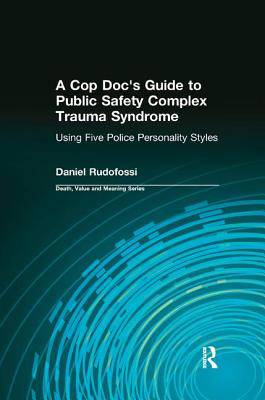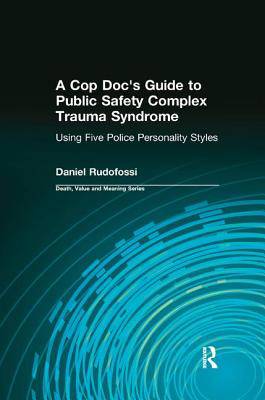
- Afhalen na 1 uur in een winkel met voorraad
- Gratis thuislevering in België vanaf € 30
- Ruim aanbod met 7 miljoen producten
- Afhalen na 1 uur in een winkel met voorraad
- Gratis thuislevering in België vanaf € 30
- Ruim aanbod met 7 miljoen producten
Zoeken
A Cop Doc's Guide to Public Safety Complex Trauma Syndrome
Using Five Police Personality Styles
Daniel Rudofossi, Dale Lund
€ 74,45
+ 148 punten
Omschrijving
"Cop Doc's Guide to Public Safety Complex Trauma Syndrome" is written in response to the need for an advanced, specialized guide for clinicians to operationally define, understand, and responsibly treat complex post-traumatic stress and grief syndromes in the context of the unique varieties of police personality styles. The book continues where Rudofossi's first book, "Working with Traumatized Police Officer Patients", left off. Theory is wed to practice and practice to effective interventions with police officer-patients. The 'how' and 'why' of a clinician's approach is made highly effective by understanding the distinct personality styles of officer-patients. Rudofossi's theoretical approach segues into difficult examples that highlight each officer-patient's eco-ethological field experience of loss in trauma, with a focus on enhancing resilience and motivation to - otherwise left disenfranchised. Thus, this original work expands the ecological-ethological existential analysis of complex PTSD into the context of personality styles, with an emphasis on resilience - without ignoring the pathological aspects of loss that often envelop officer-patient trauma syndromes.
Specificaties
Betrokkenen
- Auteur(s):
- Uitgeverij:
Inhoud
- Aantal bladzijden:
- 280
- Taal:
- Engels
- Reeks:
Eigenschappen
- Productcode (EAN):
- 9780415772075
- Verschijningsdatum:
- 6/02/2017
- Uitvoering:
- Paperback
- Formaat:
- Trade paperback (VS)
- Afmetingen:
- 150 mm x 229 mm
- Gewicht:
- 385 g

Alleen bij Standaard Boekhandel
+ 148 punten op je klantenkaart van Standaard Boekhandel
Beoordelingen
We publiceren alleen reviews die voldoen aan de voorwaarden voor reviews. Bekijk onze voorwaarden voor reviews.











